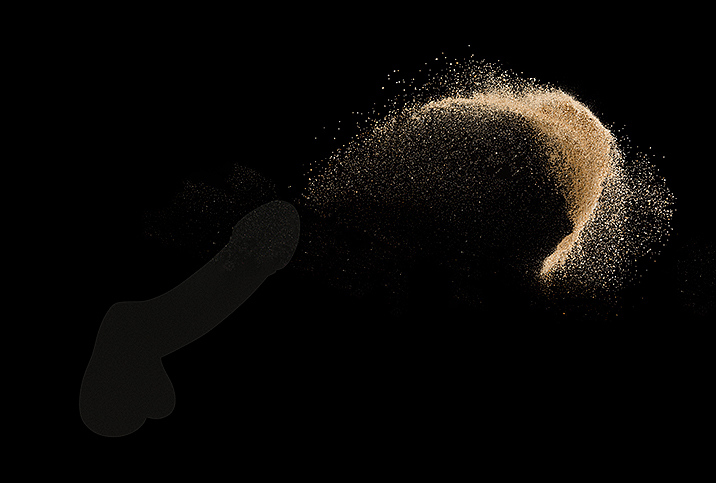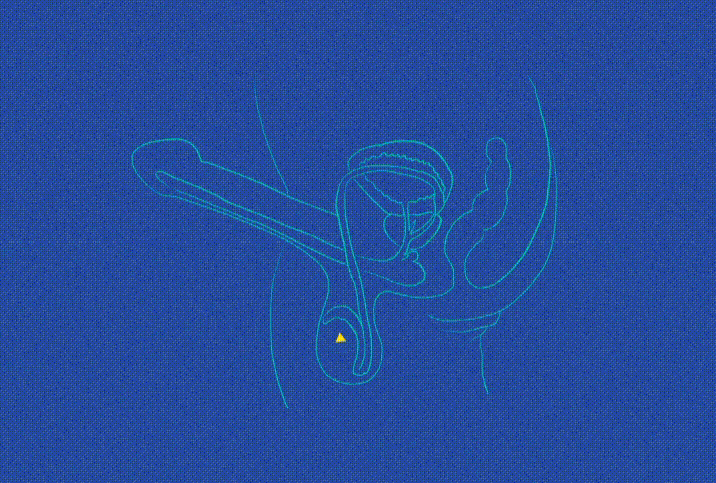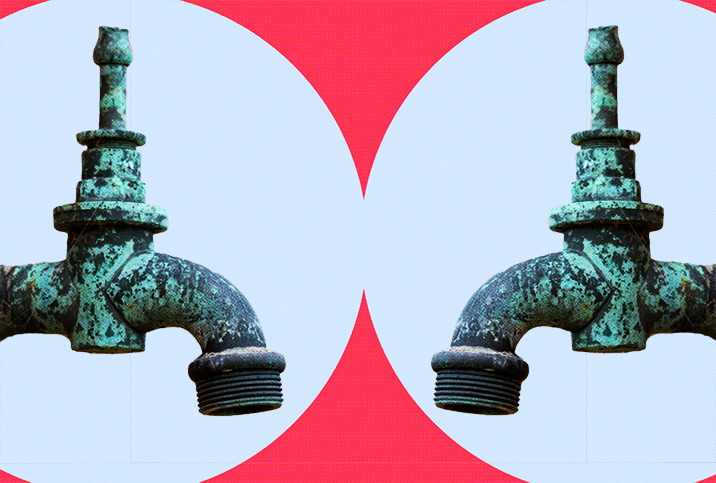Why Was My Orgasm Dry? Retrograde Ejaculation's Causes and Treatment

On occasion, men visit urologist Lael Stieglitz, M.D., and reveal they're not ejaculating. Stieglitz then asks them if the sensation is still there:
"Yeah, but nothing comes out."
"Well, are you trying to make babies?"
"No."
"Then you don't need it."
Many men associate ejaculation with orgasm. They think if they're not ejaculating, they're not completing an orgasm.
"Then when you actually ask them, they're like, 'Oh, yeah, you're right, I do still have the sensation, it's just the fluid doesn't come out anymore,'" said Stieglitz, who works at Baptist MD Anderson Cancer Center in Jacksonville, Florida.
These men have a condition known as retrograde ejaculation, where semen goes backward into the bladder rather than through the urethra and out of the body.
During ejaculation, a coordinated closure of the bladder neck—a group of muscles that connects the bladder to the urethra—prevents semen from entering the bladder. If the bladder neck is closed, the semen shoots out of the penis. A man whose bladder neck doesn't tighten and close can develop retrograde ejaculation.
While not harmful or painful, and completely separate from libido, retrograde ejaculation can cause infertility.
"Orgasm, ejaculation and erection are three separate processes," explained Laurence Levine, M.D., a professor of urology at Rush University Medical Center in Chicago. "A man can have an orgasm without ejaculation, so that could be retrograde ejaculation or anejaculation. A man could have an erection without an orgasm or ejaculation. And a man can have ejaculation without pleasure. That's called anhedonia. And you can have an orgasm without an erection."
What causes retrograde ejaculation?
Medications are a primary cause of retrograde ejaculation, Stieglitz said. The common culprit is the alpha blocker tamsulosin (Flomax), which is commonly prescribed to treat benign prostatic hyperplasia (BPH), or enlarged prostate. BPH can cause a host of urinary problems, including a weak stream and the need to urinate frequently. Flomax works by relaxing the bladder neck so the patient doesn't have to push as hard to urinate.
"What I tell my patients is men are lazy," Stieglitz said. "And if your bladder neck is relaxed enough when the semen comes out, it only has to travel an inch backward to fall into your bladder, versus traveling four, five or six inches to go out the other end."
Diabetes is the most common medical condition that causes retrograde ejaculation, Levine explained. This is due to diabetic neuropathy—nerve damage associated with the disease—that affects the bladder.
Another common cause of retrograde ejaculation is surgery, such as prostatectomies for prostate cancer and retroperitoneal lymph node dissection for testicular cancer. These surgeries may injure the parasympathetic nerves and interfere with the signal to close the bladder neck.
"The most important thing for your urologist to do is warn you in advance if a surgery or medication may cause retrograde ejaculation, so that you aren't surprised if it happens," said Raevti Bole, M.D., a urologist and male infertility and andrology fellow at Cleveland Clinic.
"Retrograde ejaculation doesn't affect your ability to have an erection or an orgasm," Bole added. "So as long as you are not trying to conceive a child, you can definitely avoid doing anything about it."
How is retrograde ejaculation treated?
If retrograde ejaculation is a side effect of a medication, stopping or switching the drug can help. If it is caused by nerve damage or surgery, medication may help, though the success rate is not high.
"If this doesn't help and your main goal is to conceive a child, then you should see a male infertility specialist to help obtain sperm some other way," Bole said.
Levine said the most common drug treatment for retrograde ejaculation is the over-the-counter cold medication pseudoephedrine, which is an alpha agonist. It acts in the opposite way Flomax does. An alpha agonist activates the receptors on the nerves that cause the bladder neck to contract, which may encourage contraction.
Levine recommended taking 30 to 90 milligrams of pseudoephedrine one to two hours before sexual activity. However, the higher the dose, the more jittery the man could become, which could interfere with his erection and intercourse. For a younger man who gets appropriately aroused, 30 or 60 mg may be sufficient.
Imipramine (Tofranil) is a first-generation antidepressant also used for retrograde ejaculation. Imipramine has a side effect that can cause tightening of the bladder neck and relaxation of the bladder. Tofranil, typically 50 mg daily, is sometimes used in men who have urinary leakage problems.
"I don't use it very often for retrograde ejaculation, but it should be taken daily to begin with," Levine said. "And if it's working, then they try taking it on an as-needed basis."
To treat or not to treat
When Stieglitz examines a man for infertility, she does two semen analyses. If the man has low semen volume, she has to find out why.
"Usually, a younger guy is not going to have retrograde ejaculation," she said. "He's not going to be on Flomax. He's not going to have had a prostate surgery."
These younger men may have obstruction of the spermatic ducts. If that's the case, Stieglitz may perform a minor outpatient procedure called transurethral resection of the ejaculatory ducts (TURED).
"That's going into the urethra and just unroofing what obstruction might be present," she explained. "You also always look at the urine for semen, because if they have low volume in their semen analysis and then you find sperm in their urine, then you know they have retrograde ejaculation."
Generally, Stieglitz treats men for retrograde ejaculation only if they're trying to conceive.
"If you're young and trying to have babies, then we do have lots of ways to investigate it and work it up further," she said. "But if they're older and they're done, well, do you really want to go down that road? This doesn't really matter anymore is what I'm trying to emphasize."
In cases where the patient has low semen volume and erectile dysfunction (ED), the American Urological Association (AUA) guidelines state to treat the ED.
"If you can fix [the ED], then you restore their confidence, and they realize they don't need the fluid because that's really just for reproduction," Stieglitz said. "And then you make them feel better."
However, ejaculation is part of the sexual experience and a point of satisfaction and intimacy for some men, Bole said.
"If you feel that retrograde ejaculation would really affect your sex life, then talk about it with your doctor," she said. "Sometimes you can choose a surgery or medication with lower risk of retrograde ejaculation, though it's difficult to guarantee that it won't happen, depending on what your underlying condition is."


















